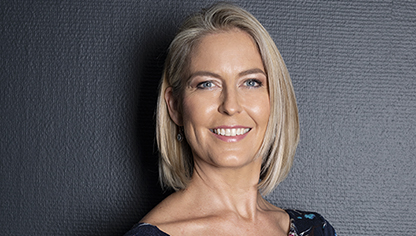Receive Focus insights straight to your inbox
As South Africa switches into high gear for election season, is it any wonder that Moody’s Investor Service held off on issuing its pronouncement of the country's creditworthiness?
In all likelihood, it was mindful of alleviating further strain on the country and its currency amid the myriad of domestic and international pressures it already suffers.
The ratings agency was due to issue an assessment on Friday 29 March, but only published its credit opinion on Tuesday 2 April, which remains unchanged at a stable outlook. As this does not constitute a formal rating action, the country, therefore, remains at the Baa3/BBB- sovereign rating level.
Subsequently, the rand extended its gains and remained boosted for several days.
Following the Budget Speech’s forecast of increased deficit, the broad expectation had been that Moody’s would change its outlook to negative, which would precipitate a downgrade later in the year, or worse, immediately. Moody’s is set to review SA again on 1 November 2019, following the next medium-term budget policy statement.
Moody's is currently the only major ratings agency that still has South Africa's sovereign rating classed as investment grade, albeit just one level above junk status. Both Fitch Ratings and S&P have downgraded the country’s sovereign debt to sub-investment grade. This occurred in the wake of former president Jacob Zuma’s overnight cabinet reshuffle in 2017.
Q1 2019 quarterly review
How does this all play out for South Africa? According to Investec's Chief Economist, Annabel Bishop, looking at the country's first quarter, it was at best unremarkable, at worst poor when it came to macroeconomic data releases.
PODCAST: Macroeconomic data releases
Inflation is seen to be under control even though there are inelastic demand factors that are going to exert upward pressure on inflation, so monetary policy is likely to remain on hold barring as yet unforeseen or extraneous factors, says Bishop.
GDP expectations are being tempered as the Eskom factor continues to concern and as global growth concerns persist. Business and consumer confidence meanwhile remain mired at historically low levels, and the local consumer remains constrained, and the looming election is a psychological influence on any recovery in the short-term.
The Rand has surprised with relative strength throughout the new year. It has been bombarded with potentially negative factors both domestic and international and yet managed to hold on to reasonable and manageable levels, despite the occasional wobble.
Locally, Eskom’s woes and government policy paralysis ahead of the general election are serious concerns, as well as the anaemic economic data that are a constant presence.
Internationally the threat of slowing growth or even a recession in the US and Europe looms large with the threat of ‘risk-off’ at the front of currency traders’ minds.
Altogether the line of least resistance appears to be to the rand’s downside, a view that is explained by David Gracey, head of fixed income and currency trading at Investec.
PODCAST: Can we see a stronger rand?
About the author

Angela Rettenbacher
Digital content specialist
Angela read for a Bachelor of Journalism degree at Rhodes University in Grahamstown in the early nineties, followed by a two-year stint at the SABC. Soon after, she went backpacking for 10 years! Prior to joining Investec's content team, Angela spent nine years as an Output Editor on the newsdesk at eNCA, both in TV news and Online. Before that, she spent eight years in the corporate sphere, in the Investment Banking and other divisions of Goldman Sachs both in London and Johannesburg.
Subscribe to Investec's podcasts on market and economy moves

Listen to regular interviews with experts from across the Investec group. Our channel is accessible wherever you currently listen to your podcasts.

Listen to each podcast individually or subscribe to get new episodes as they become available.




